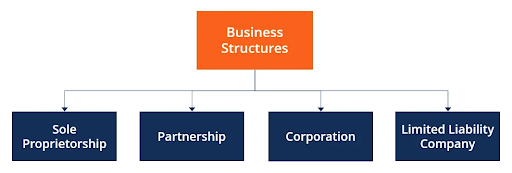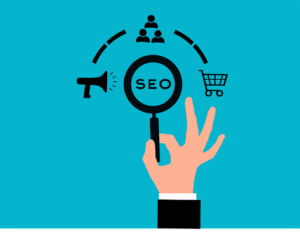Maximizing Success: Smart Strategies for Business Growth Looking to spark...
Read More
Online Business: What Is It And How To Start Your Online Business
Surrinder

Businesses across geographical dimensions have benefited from the internet’s ability to level the playing field for business owners in various ways. Online companies are straightforward to establish instead of brick and mortar firms, which need significant upfront investment. However, this relative easiness does not suggest that you can jump in and set up an online business. There are various critical choices to be made.
You must first build a solid foundation to set up your online business like any other business. Building a robust foundation can be done by developing a suitable product concept, determining your sourcing or production strategy, and then determining your sales model.
Let us delve deep into understanding the step-by-step process of building an online business that will provide you with a solid foundation to support the weight of your future business development and success. But before diving in there, let us understand what an online business is.
What Is An Online Business?
The term “online business” refers to any commercial activity that takes place through the Internet. Online business encompasses selling goods, services, training, and SaaS solutions. An eCommerce is the same when referring to an activity, such as doing business online. An e-commerce model is one in which commercial transactions occur through digital or electronic networks. In most circumstances, this will be accomplished over the Internet.
In today’s digital age, every kind of company may operate online. A web presence is essential for even the most established businesses. It is vital since it allows you to grow your business and have a more diverse company.
Businesses may benefit when clients shop 24 hours a day, seven days a week, in different locations. A vast potential for doing business is wasted if you do not have an online business.
Online firms have the freedom to concentrate only on marketing and product development. The sale of digital products is fully automated. But not all internet companies are created equal. They differ significantly in how much they demand in terms of effort and money.
Reasons You Should Start An Online Business
An online company makes sense since it offers several benefits over a traditional firm despite the lengthy setup procedure. There are many reasons you should start an online business. Here are the primary three:
1. Fairly Inexpensive With Low Risk
Many people desire to start a business but are put off by the startup costs. You may establish an online business for free if you choose the proper business structure, products and selling platform.
A brick-and-mortar business requires a lease, merchandise, and employee salaries budget. What if you put all that money into your firm and it fails? This can be fatal for your finances.
Being an online business entrepreneur doesn’t need risking your life’s wealth. For example, if you sell on Amazon as a drop shipper, you won’t pay anything until you sell anything. Even then, fees are deducted from sales you generate. With the right pricing approach, you may make money without doing anything.
This situation also reduces your risk as an online merchant. If it doesn’t work out, you may cancel for free.
2. Diversified Markets With Potential Growth
When you operate an online business, none of the limitations of renting in good locations, falling foot traffic, and the local community not requiring your products apply to you. Everybody may buy from you, regardless of where they are located. As more individuals get more familiar with the notion of purchasing online, your potential consumer base grows.
It is n ideal time to set up your online business since surveys show that this trend towards online purchasing will continue. As more and more individuals get access to the internet globally, the market for online sellers becomes even broader.
3. Round-the-Clock Operation
Unlike brick-and-mortar firms, internet businesses can operate round the clock. Shoppers may add products to their shopping cart once your company website or store is up and online. You can sell the same products across different channels.
An internet business doesn’t need a physical location, so sales flow in regardless of whether or not you’re keeping an eye on them. You can generate money while you sleep if you automate your sales process from stock management to delivery.
How To Start Your Online Business

The ability to develop the next million-dollar online business idea is critical. Still, it is also one of the most straightforward. It is time to roll up your sleeves and put in some serious effort for setting up an online business.
The following is a step-by-step guide that will teach you all you need to know to build a successful online business.
1. Evaluate Your New Business Concept
Even if starting an online business is easy, it doesn’t imply there are no costs involved. The initial step in starting an online business is determining whether your concept is viable.
Even the most creative business plan might fail if your product or service doesn’t have a market. Unless you’ve found a solution to a widespread issue, you will be wasting your time and finances if the answer turns out to be unappealing to the majority of the population.
It is critical to look at your online business idea. Here are a few of the things you should contemplate:
- Is there enough demand for your product or service to justify your existence?
- What is the cost-effectiveness of your product or service in solving that problem?
- Is there a willingness to pay for a solution?
- How much will it cost to get your product or service to reach the customers who need it the most?
2. Document Your Business Plan
Now that you have a solid online business idea and a target market of prospective clients, it’s time to create a detailed business plan. Even if you don’t plan to raise funding for your firm, a business plan can help you reach your objectives.
A good strategy can help you define your target market, explain your goals, give a marketing roadmap, and help you make choices that may make or break your business.
But if you want investors, you must mention the following elements:
- Write an executive summary as investors want to see a separate paper that summarises the company.
- The problem, solution, competition, and competitive advantage of your products/services.
- Include information on the target market, projected growth, and industry developments as market research.
- Describe your marketing strategy, including expenses, pricing, and strategic alliances.
- Your team members and their roles.
- Financial projections (like a six-month sales forecast, profit and loss statement, cash flow statement, and balance sheet) if you have started your online business.
- You can show off your business plan with an AI presenter that you can create with your documents to impress your investors.
3. Decide On The Structure Of Your Company

The company structure you pick will determine the legal and tax obligations you must satisfy. When starting a new business, it’s best to contact an attorney to identify the best business structure. You may also wish to seek the advice of a tax expert due to the wide variety of tax structures.
The most common business structures for small businesses include:
Sole Proprietorship: Even though this is the most basic kind of corporate organisation, the absence of restricted liability makes it less appealing than other options.
Partnership: If you’re launching your firm with a partner, this kind of business structure may appeal to you. However, like a sole proprietorship, your responsibility is unrestricted.
Limited liability company (LLC): The formation may be time-consuming and complicated for small businesses. Therefore an LLC provides restricted responsibility without the added burden of incorporation.
Corporation: It’s more complex to set up and run a corporation than an LLC. Still, it may be a viable option depending on your situation.
4. Pick Your Business Name
Choosing a company name is a crucial stage in the starting process. Because your firm will be primarily online, your selected name must be accessible for registration as a business name in your state and online.
If your preferred name isn’t accessible as a domain name or social media username, explore variations and remember that domain name extensions beyond “.com” are possible. Also, make sure your name and domain name don’t conflict with any other names.
5. Take Care Of All Legal Matters
The same legal rules apply to an internet business as a brick-and-mortar company. Your new company’s legal basis will be solidified by filing the required business formation forms and other documentation.
Different states and nations have different legal requirements for businesses, as does your business’s specific industry and size. Make sure your company complies with applicable federal and state laws by consulting a lawyer.
If you own a business website, you should create a privacy policy and terms of service to protect yourself against data gathering liabilities.
6. Create Your Website and Select Your Supply Chain Options

The website of an online business is as vital as a brick-and-mortar company’s actual location, and you must treat it with the same attention. Consider payment processors while planning your website. Hiring a web developer to assist design your site makes sense for many online companies.
Choosing a web host is also vital. If your host has too much downtime or if your site is too sluggish to load, your website is useless. Aside from internet evaluations, ask about your personal and business network connections. Other online company owners may provide vital insight into a web host’s dependability.
Depending on your product or service, you’ll also need to examine and determine your supply and inventory sources and how you’ll get them to your consumer. Again, possibilities abound. Enough research on this topic might spell the difference between success and failure.
7. Source Products
Now that the legal and preparation work is done, it’s time to discover providers for your new goods and services. Depending on your product, you may need to find suppliers for raw ingredients or completed goods. It is crucial to locate a dependable provider that can deliver what you need.
If your internet company entails contract manufacturing, you need to store products. Dropshipping is another option to explore when launching an online company with limited funds. You don’t need to stock, package, or ship. Search for trusted dropshipping providers.
8. Incorporate Shipping And Payment Method
You’ll need a payment processing solution if you decide to develop a website without an e-commerce platform. A wide variety of payment methods are supported. The system can easily be integrated into your site’s shopping cart if you so desire.
9. Prepare And Execute Your Pre-Launch Marketing Strategies
While working on each of the preceding stages, you must advertise your online business. As a result of the information included in your business plan, you will be able to create efficient marketing strategies for your target market. It will help if you don’t cut corners regarding implementation, regardless of your tactics. Integrating the strategy to convert your website into an app can significantly enhance user engagement and accessibility, further broadening your market reach. This move not only caters to the growing preference for mobile app usage over traditional web browsing but also offers a more personalized user experience.
By building up your target market’s anticipation for your launch via social media videos and other promotional strategies, you will be laying the groundwork for a successful debut.
10. Launch Your Online Business
When your website goes online and proclaims that you’re open for business, you’re essentially inaugurating your company metaphorically. There are many methods to make this announcement, including:
- Your e-newsletter distribution system
- Ads on the Internet
- Social media platforms
- Traditional ads
You’ll have to do a few things after your online business is up and running to keep your online business operating effectively. So, the activities you take following a sale and how you monitor and drive development are crucial to the failure or success of your online business.
Bottom Line
Creating a successful online business is comparable to beginning a business with a physical storefront. If you’ve got a great business idea, now is the time to put it into action. From the beginning, you will need to evaluate your idea, do business planning, and be aware of your tax obligations. Putting up an effective website and getting it in front of your intended audience cannot be understated.
No doubt, following the above measures will take time and effort, but they will help your online business succeed in the long run.
More on the RankHandy Blog
How Digital Transformation is Transforming Customer Experiences
How Digital Transformation is Transforming Customer Experiences Technology has presented...
Read MoreHow to Boost MRR Through Effective Organic Traffic Strategies
How to Boost MRR Through Effective Organic Traffic Strategies Monthly...
Read MoreCustomer-centric marketing: Strategies to boost engagement and loyalty
Customer-centric marketing: Strategies to boost engagement and loyalty Consumers today...
Read More



